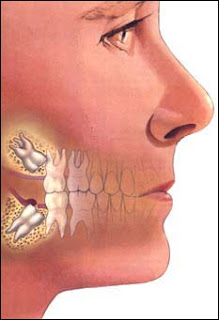Christimas is coming, which means that soon we will take up buying Christams gifts for our friends and family. Below you will find a few useful hints what to buy and what to avoid.
THE MOST POPULAR CHRISTMAS GITFS
1. Cosmetics and jewellery
2. CDs with music and tickets for a concert of a favourite band
3. Mp3 players, iPods etc.
4. Computer games
5.
SPA, gym swimming pool pass
6. Electronic devices
7. Clothes
8. Photos of the giver and receiver of the gift (usually in a big size)
9. Pillows, cups etc. with a picture of the receiver (to be found online)
10. Home decorations
11. A very big Christams card
12. Calendar
13. A watch
14. Underwear and bedding
15. T-shirts with funny inscriptions or pictures
16. A wallet/ purse
17. Clothing accessories (bags, scarves etc.)
18. A cinema/theater/restaurant invitation
19. A pet (gold fish)
20. Tableware
21. Various kinds of tool kits
22. Elaborate alcohol
23. Shopping cupon
24. Hair devices like a curler
25. Basket of favourite sweets
THE WORST GIFTS EVER!
Below we present is a list of gifts that you should not give to anybody not to offend the receiver:
1. "Appearance improvers"
When choosing gifts, try to avoid those that suggest any imperfections associated with the appearance of the receiver. Avoid slimming underwear, anti-wrinkle cream, electric depilator and hygiene items.
2. Trinkets.
Before you give a present, think about what the receiver can do with this item. Is it in any way useful, or the only function it plays is gathering dust. Gifts like a plaster statue, a picture of a sunset or a vase are not very useful.
3. Your own photo in a frame.
It is certainly no a present in very good taste. It reveals your selfishness. It is much better to give a enlarged picture of your and the receiver, providing that your relation is intimate enough.
4.Very cheap/expensive gifts.
Quite an important aspect of the gift is its price. It should be middle worht. If you buy a too cheap gift, it may look trashy. On the other hand, offering a very expensive present, we can embarrass the person who receives it.
5. The same gift as last year.
Choosing the same gifts, may indicate a lack of imagination and commitment.
6. "For later"
Avoid giving presents which can be used in the future. it is a complete nonsense to give a book to a child who can not read, or clothing that the kid will be able to wear in two years. It's better to focus more on the present.
7. Gifts from the ending date of usefulness/ expiry date
This is another gift which may hurt our relatives.
8. Money
Giving gifts is associated with devoting you time for the other person. Donating a gift of money, may indicate disregard and "going the easy way."
9. Your own gifts which you do not like
The peak of arrogance would be to give somebody a gift that you have received. Let's not make the holidays an opportunity to get rid of unnecessary items.
10. Second-hand clothing
This proposal is in the last place, because there isn't a worse idea for a gift than used clothes and especially underwear. This gift proves not only ignorance but also a lack of tact.
MEMORABLE GIFTS
Gifts in the form of vouchers will remain in memory for many years. They are interesting, original, unique and totally different from those that we give every day. However, when choosing a gift, it is worth considering whether the reveicer would want to use it. It may indeed prove that we buy Horse riding lessons for someone terrified of horses, or we spend money on climbing course for an uncle, who can not stand the physical strain. So you have to think about it, and even gently ask your family who likes what. One thing is certain, active gifts are something completely new and different than traditional gifts. Now you can go crazy a little, and at the same time surprise your cousin, husband, children, or for example a friend. The choice is yours.






